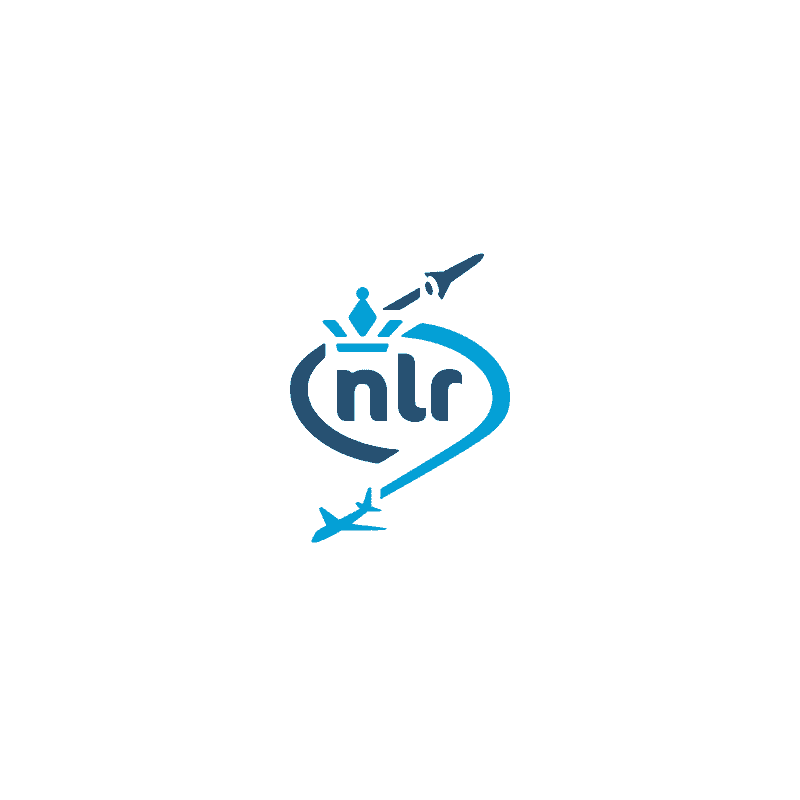NLR’s activities span the full spectrum of Research Development Test & Evaluation (RDT&E). Given NLR’s specialist knowledge and facilities, companies turn to NLR for validation, verification, qualification, simulation and evaluation. NLR thereby bridges the gap between research and practical applications, while working for both government and industry at home and abroad.
NLR stands for practical and innovative solutions, technical expertise and a long-term design vision. This allows NLR’s cutting edge technology to find its way into successful aerospace programs of OEMs, including Airbus, Embraer and Pilatus. NLR contributes to (military) programs, such as ESA’s IXV re-entry vehicle, the F-35, the Apache helicopter, and European programs, including SESAR and Clean Sky 2.
NLR has been founded in 1919 and is employing some 650 people.
Mission
NLR’s mission is to increase the sustainability, safety and efficiency of transport.
NLR is the Netherlands Aerospace Centre for identifying, developing and applying advanced technological knowledge in the area of aerospace. Our activities are relevant to society and market-oriented. We thus strengthen the innovativeness, competitiveness and effectiveness of government and business.
Strategy
NLR’s strategic ambition is to be the Dutch government’s most obvious partner of choice for dealing with aerospace-related matters. NLR is also committed to being the most competitive knowledge organisation for the Dutch aerospace sector in Europe (with the best price-quality ratio). NLR will continue to expand its knowledge in the areas of air safety, environment and composites.
NLR will strengthen its (inter)national collaboration with aerospace enterprises and miscellaneous small and medium-sized companies, with KLM-Air France, Schiphol and LVNL, universities, the Netherlands Aerospace Council, the regions in the Netherlands with aerospace ambitions and with its counterparts DLR.
The necessary research and testing facilities will continue to be modernised and rationalised, as applicable. The intent is to use facilities in broader forms of collaboration, such as by strengthening the composites cluster in Flevoland. This applies to the wind tunnels in particular.
Our customers
NLR translates scientific knowledge into smart technological ideas based upon which the industry can develop concrete and competitive products. It thus serves as an intermediary between universities and businesses. NLR also provides materials for policy development by the ministries that are responsible for the safety and environmental aspects of air transport. NLR generates 75% of its turnover from paid contracts from the Netherlands and other countries, from governments to aircraft manufacturers, and from civilian to military clients. About half of NLR’s industrial activities are carried out on behalf of small and medium-sized businesses.
Our partners
NLR participates in European aviation projects which are designed to increase safety for passengers and crews and increase the capacity of airspace and airports. The knowledge acquired by NLR during these projects is partly intended to answer questions from the Dutch government and industry.
The European programme Clean Sky, for instance, is focussed on developing breakthrough technologies to increase the environmental performance of airplanes and air transport. This will result in less noisy and more fuel-efficient aircraft and will also contribute to achieving the Single European Sky environmental objectives.
NLR works closely together with other research institutes such as the TNO and MARIN, and at an international level with ESA and the German DLR. DLR and NLR are partners in AT-One: the European ATM research alliance.
For more information, please visit our website: www.nlr.org or send us an e-mail at: info@nlr.nl

